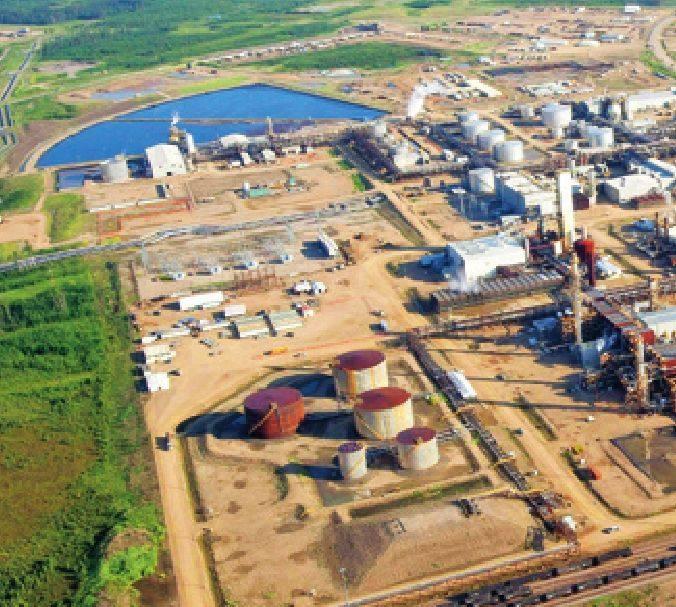Global Ambitions
2013-04-29ByZhouXiaoyan
By Zhou Xiaoyan
The last hurdle for the Chinese offshore oil giants takeover of Canadian oil and gas company Nexen has been removed after the U.S. regulator approved the $15.1 billion acquisition of Nexen Inc. by the state-owned China National Offshore Oil Corp. (CNOOC) Ltd. on February 12. The deal is expected to close at the end of February.
CNOOC made a bid in cash of $27.5 per share to the Calgary, Alberta-based company on July 23, 2012 and promised to retain the$4.3-billion debt from Nexen. The proposed acquisition was approved by Nexen shareholders in September last year.
The deal passed regulatory examination in Canada, Europe and China. Approval from the Committee on Foreign Investment in the United States was needed because of Nexens U.S.-based interests.
It will be Chinas biggest-ever overseas acquisition once it is completed. CNOOCs successful takeover could offer a textbook example for Chinese companies looking to expand abroad. But observers worry about the profitability of the deal and the integration of two sharply different management cultures.
A good example
As many Chinese companies emphasize their“going global” strategy, their overseas expansion plans often encounter many obstacles.
Chinese companies, especially state-owned enterprises, have been frequently targeted in recent years because of growing protectionism amid a sluggish global economic recovery.
CNOOC in 2005 failed to buy American petrochemical corporation Unocal for $18.5 billion, a deal that foundered on U.S. allegations of national security concerns. Seven years later, CNOOC made an offer to Nexen and the deal managed to withstand intense scrutiny in Europe and the United States.
Compared with other state-owned energy companies, CNOOC has its own special characteristics. Back in the 1980s, the Chinese Government dismissed the petroleum ministry and set up Sinopec, PetroChina and CNOOC for producing and selling petroleum. In sharp contrast with the other two conglomerates that boast technologies and infrastructural equipment for onshore oilfield exploiting, CNOOC was assigned to exploit offshore oilfields. CNOOC had no choice but to start from scratch. It cooperated with foreign companies on offshore oil and gas exploitation, becoming the most attractive energy company in China for foreign investors.
CNOOC has been on the fast track of global expansion in recent years. In 2011, it bought oilsands producer OPTI Canada at $1.2 billion.
Although CNOOC failed to acquire Unocal back in 2005, it gave CNOOC more experience in overseas M&A, which made it better prepared for the Nexen deal, said Lin Boqiang, Director of Xiamen-based China Center for Energy Economic Research.
A change in the global economy is another reason for CNOOCs success. Changing global energy dynamics gives CNOOC a golden opportunity to win takeover bids, said Lin. He adds that countries rich in energy sources, such as Canada and Russia, are eyeing new markets, while China is one of the very markets that big energy countries are seeking out.
The sluggish global economic recovery is beneficial for Chinese companies seeking overseas acquisitions, said Lin.
“Mired in shrinking energy demands, some cash-strapped foreign countries are forced to seek out investment or equity acquisition. Its a good opportunity for Chinas energy companies with their hands full of cash,” he said.
A win-win deal
Lin also attributed the success to CNOOCs open communication with Nexen and the Canadian Government, and the concessions it made during negotiations.
As part of the agreement, CNOOC promised to keep Nexen jobs in Canada, make Calgary its base for its American operations, acquire the $4.3 billion debt from the Canadian company, and participate in developing gas and oil resources in Canada.
“Those promises are definitely beneficial for Nexens future sustainable development and are in line with interests of Canadian citizens,”said Lin.
However, the Canadian Government insists that it will allow no further takeovers by Chinese state-owned enterprises except under exceptional circumstances after giving the green light to the CNOOC-Nexen deal.
Nevertheless, its widely believed that there will be more deals in the energy sector simply because Canada needs further investment to develop its vast oil resources.
For CNOOC, acquiring Nexens assets will strengthen its presence in Canada, Nigeria and the Gulf of Mexico and allow it to enter the oil- and gas-rich North Sea regions, says the company.
CNOOCs oil and gas output is expected to be enhanced by 20 percent and its proven reserves may grow by 30 percent after the Nexen purchase. “This is not only a very good complement to CNOOCs assets, but also strengthens its global layout,” reads a company statement.
“The acquisition reflects our strong belief in Nexens rich and diverse portfolio of assets and world-class management and employees,” said Wang Yilin, Chairman of CNOOC, in a statement.
Han Xiaoping, an expert in the energy sector, said the Nexen deal will make it easier for CNOOC to make further acquisitions in overseas market.
“In the global energy market, CNOOC is only a second-tier company. After the Nexen deal, CNOOC will be on its way to becoming a major global player,” said Han.
“Nexens assets are scattered in Canada, the Gulf of Mexico, the North Sea and the shores alongside Brazil, which are the worlds major oil resources. The Nexen deal means that CNOOC will have drilling access to all major highyield basins worldwide. I think great changes will take place in CNOOCs future development,”said Han.
Challenges ahead
After CNOOC completes the purchase, how to manage these overseas assets well will be a tough test for CNOOC.
“CNOOC has somewhat overbid for the deal and has to take over $4.3 billion of debt from Nexen, making profitability a key aspect to improve,” Shen Yan, General Manager of M&A at CCID Consulting Co. Ltd. told Xinhua News Agency.
The Canadian company saw net income decrease to $59 million in the third quarter of 2012, a fall of 85 percent from the previous quarter, with lower production and higher operating costs.
Since CNOOC didnt uncover details of its promises to the Canadian Government, there is no way to judge whether the concessions that CNOOC made are worthwhile. For instance, CNOOC promised to invest a considerable amount of capital to propel the development of oil and gas exploration in Canada. If the amount is too high and the timeline is too long, it could be a huge burden for the Chinese company.
“The end of the transaction is just the first of a million steps,” He Manqing, Director of the Research Center on Transnational Corporations of the Chinese Academy of International Trade and Economic Cooperation, told Beijing Review.
“When it comes to a successful M&A case, values, management principles and the balance of interests are more important than money,”she said.
“Integration is the key to CNOOCs acquisition,” said He. “Cultural integration is more important than technological integration.”
“In all the failed cross-border M&A cases, 70 percent were because of cultural differences,”she said, adding that an understanding of different cultural backgrounds and East-West management styles is key to the acquisitions success.
CNOOC Ltd.
CNOOC Ltd. is Chinas largest producer of offshore crude oil and natural gas and one of the largest independent oil and gas exploration and production companies in the world.
The company mainly engages in exploration, development, production and sales of oil and natural gas. The companys core operation areas in offshore China are the Bohai Sea, Western South China Sea, Eastern South China Sea and the East China Sea. Overseas, the company has oil and gas assets in Asia, Africa, North America, South America and Oceania.
With 3.19 billion barrels of proven reserves, CNOOC Ltd. produces approximately 909,000 barrels of oil per day as of December 31, 2011.
CNOOC Ltd. has 5,377 employees and total assets of approximately 384.26 billion yuan ($61.56 billion).
Founded in August 1999, CNOOC Ltd. is listed on the New York and Hong Kong stock exchanges.
Its parent company CNOOC, which owns 64.45 percent of CNOOC Ltd., is the countrys third largest oil company and ranked 101st on the list of Fortune Global 500 companies in 2012.
Nexen Inc.
As the 14th largest oil company in Canada, Nexen is an upstream oil and gas company responsibly developing energy resources in the UK North Sea, offshore West Africa, the Gulf of Mexico and Western Canada. Nexen has three principal businesses: conventional oil and gas, oil sands and shale gas.
Nexen has 900 million barrels of proven reserves as of the end of 2011. The company is listed on the New York and Toronto stock exchanges.
